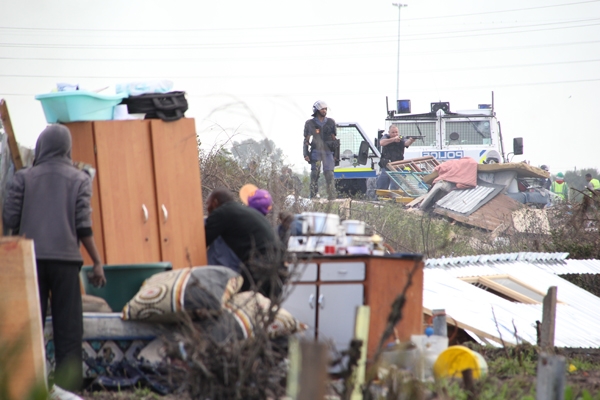Week in activism

This week we look at the SERI’s workshop on law related to eviction, the social dialogue for the gay and lesbian community, TAC’s march for better services and IOM’s public debate on human trafficking.
SERI’s workshop on law related to eviction
The Socio-economic Rights Institute partnered with the South African Local Government Association (SALGA) in a workshop on the law related to evictions, in Durban in the KwaZulu Natal on 2 October. This follows a similar workshop in East London. For more information visit SERI.
Social Dialogue for the gay and lesbian community
Three organisations joined hands to host a community Social Dialogue on the protection of the gay and lesbian community in Ventersdorp after Disebo Gift Owen Makau, a 24 year-old lesbian was found half naked and strangled on 18 September. Iranti-org, the Legal Resources Centre and Sonke Gender Justice hosted a meeting of members of civil society, representatives from local government, religious organisations, traditional leaders, the SAPS and the gay and lesbian community from Ventersdorp, Klerksdorp, Rustenburg, Mafikeng and Potchefstroom. For more information visit SONKE.
TAC marches for better services
The Treatment Action Campaign (TAC) will march on October 13 from Makhaza to the Matthew Goniwe Clinic to hand over a memorandum to the clinic manager about complaints from residents. For more information visit TAC.
IOM Marks Human Trafficking Awareness Week in South Africa
The International Organization for Migration (IOM) will partner with the Department of Justice, the NPA, South African Police Service and the Dutch Embassy to host a public debate on Trafficking in Persons and Liberalization of Legislation on Commercial Sex Work in South Africa on October 10. IOM says South Africans are being trafficked to other countries and traffickers use the country as a transit destination. Victims are also recruited from informal settlements and rural areas by traffickers who take advantage of the desire of people for a better life. For more information visit IOM.
Next: Belhar students’ fee battle
Previous: Hangberg on a knife-edge

This article is licensed under a Creative Commons Attribution-NoDerivatives 4.0 International License.


